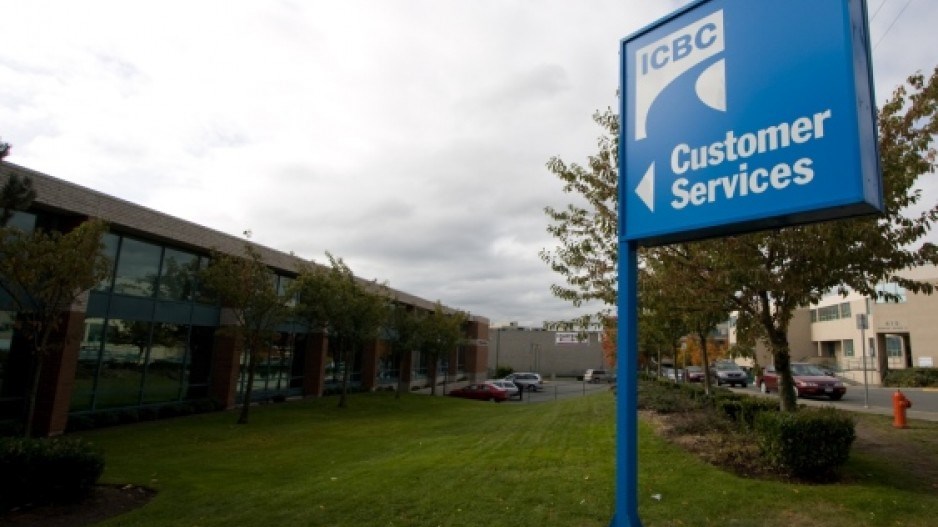The Insurance Corporation of B.C. (ICBC) lost $256.8 million on basic coverage last year, according to the Crown auto insurer’s annual report, which was released last week.
The results for the year-ended December 31, 2015, were published in an updated version of the ICBC three-year service plan on its website. Underlying data says the file was modified May 31, but no news release was issued.
“They always publicize the good news; they don’t publicize the bad news. This is very bad news,” said Rick McCandless, a retired former assistant deputy attorney general who studies ICBC. “This current pattern is unsustainable.”
Net income fell from $372 million in 2014 to $131 million in 2015, which was $79 million lower than budgeted.
Said the report: “These decreases are primarily due to higher claims costs partially offset by higher investment income and higher premiums earned.”
It blamed the frequency and cost of injury claims, higher legal and medical costs and more lawyer-represented claims and the number of catastrophic claims, which lead to higher settlements.
In 2014, ICBC reported $87.1 million net income on basic coverage, meaning a negative swing of nearly $344 million in 2015. It did, however, show an optional coverage revenue increase in 2015 of more than $100 million to $387.3 million.
The company had a $666 million underwriting loss on $4.5 billion revenue and $5.21 billion expenses. Investment income of $920 million, more than double what it had budgeted, kept ICBC out of the red in fiscal 2015.
But the company’s basic coverage equity fell to $1.05 billion from $1.63 billion and total equity dropped to $3.15 billion from $3.6 billion. Because of the low-interest rate climate, the Crown corporation admitted that it cannot rely upon investment returns to offset claims costs.
“Typical of other property and casualty insurance companies,” the annual report stated, “ICBC faces other financial and non-financial risks such as changing demographics, increase in sophistication of cyber security threats, natural catastrophes, volatility in investment markets and global uncertainty, all of which we continue to monitor.”
The report added that ICBC’s battle against fraudulent claims has expanded to a cyber crime unit that monitors the Internet and social media. The ICBC special investigations unit opened 5,000 claims investigations in 2015.
NDP critic Adrian Dix said ICBC’s balance sheet would look a lot better had the BC Liberal government not “scooped the financial heart out of ICBC” by transferring $1.2 billion since 2010 to the central government to help it balance the budget.
“Up to 2010, ICBC was largely run as a non-profit automobile insurance company,” Dix said, “and it has been transformed by reducing service and on a political level by becoming a source for the government to raid.”
In the summer 2013 edition of B.C. Studies, McCandless authored a 40-year analysis of political influence on B.C. public auto insurance from 1970 to 2010.
McCandless said whichever party forms government after the 2017 election will be facing a serious problem because ICBC is “becoming more and more expensive and less and less affordable.”
Last fall, ICBC applied for a 5.5% increase to basic insurance rates.
In his 2013 paper, McCandless noted that there have been sporadic efforts to de-politicize the company, “since voters are its customers, it is necessary for all governments to retain influence over its affairs.”
But he said ICBC no longer tries to provide low-cost auto insurance, instead it resembles a commercial operation providing profit to government.
“It seems ironic that, by 2010, the Liberal government, which promised to de-politicize the relationship with ICBC had more control than ever over its operations and rates through various cabinet directives,” McCandless wrote.




